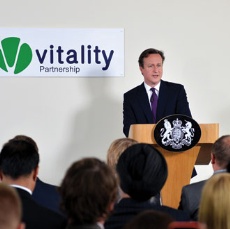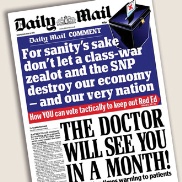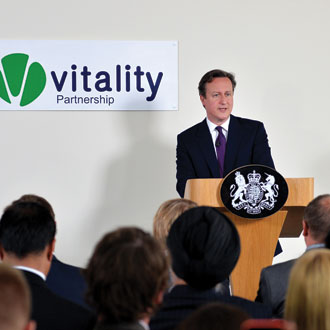The Government is promising a ‘new deal’ for GPs, including a review of the GP contract to make the job more attractive.

Prime Minister David Cameron used his first speech since he was returned to Downing Street at the general election to say that his second term would see ‘a transformation of primary care’.
He gave little detail on what the ‘new deal’ would entail, but said general practice should expect ‘more investment, more training and a more personal link with patients’.
Jeremy Hunt, reappointed as health secretary by Mr Cameron, said in an interview on BBC Radio 4’s Today programme that details of the new deal would be revealed this month.
He told the programme: ‘We need to look at the terms and conditions of general practice; we need to look at why GPs have so much burnout. We need to look at the contract – I’ve already got rid of about 40% of the targets in the GP contract – and, as I say, we have recruited more GPs.’
Mr Hunt hinted that lesser-qualified healthcare staff – such as physician assistants – would take on more work in primary care and that he was looking at the contractual arrangements for locums.
The Department of Health was unable to elaborate on the health secretary’s plans, but confirmed they would be announced in a speech later this month.
Longer GP waiting times
Commentators said it was significant that the PM chose to address the subject of the NHS in his first major speech since the election, particularly after the health service featured so prominently in the election campaign.

The day before the election, the Daily Mail, normally the Conservatives’ staunchest supporter, covered the results of a Pulse survey that showed GPs predict average waiting times for appointments will reach two weeks within 12 months.
Mr Cameron gave his speech at the Vitality Partnership in Birmingham, one of the successful bidders for his £400m seven-day access Challenge Fund.
The PM said he wanted everyone to have access to a GP ‘at mornings, evenings and weekends’.
He added that his vision was to ‘rethink’ what primary care could be: ‘Prevention, not just treatment. Tackling causes, not just symptoms. Treating the whole person, not just an individual ailment.’
He painted a picture of a patient being able to use an ‘app to book appointments for before or after work, order a repeat prescription online and have it delivered to his home, and even use Skype, FaceTime or email to get advice without setting foot outside his front door’.
But GP leaders said it was impossible for GPs to do more under current resources.
Unrealistic
RCGP chair Dr Maureen Baker – who has been calling for a ‘new deal’ for GPs – said there was a risk that the Government’s seven-day access pledge would create unrealistic expectations among the public.
Dr Baker said: ‘Telling patients that they can walk into their local surgery in the evening or at weekends risks raising expectations that general practice cannot live up to with current resources.
‘It is difficult to see how this will work without major investment and a major boost to the GP workforce.’
GPC chair Dr Chaand Nagpaul was even more critical. He told last month’s LMCs Conference: ‘Now the election is out of the way, I call upon the Prime Minister to jettison the political pipedreams of tomorrow and get real about how we resource, resuscitate and rebuild general practice today.
‘Any new deal for general practice must start with workload, workload, workload. In the 25 years I’ve been a GP, it’s never been tougher.’
Pulse October survey
Take our July 2025 survey to potentially win £1.000 worth of tokens














